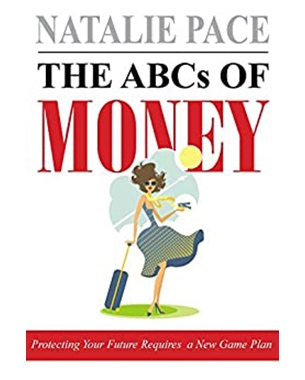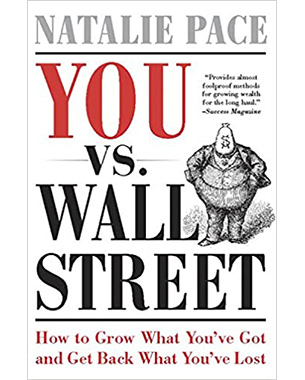About Natalie
Natalie Pace is the co-creator of the Earth Gratitude project and the author of the Amazon bestsellers The Power of 8 Billion: It's Up to Us, The ABCs of Money (6th edition), and more. She has been ranked as a number one stock picker above over 835 A-list pundits by the independent tracking agency, TipsTraders. Ms. Pace's easy-as-a-pie-chart nest egg strategies are enthusiastically recommended by Nobel Prize-winning economist Gary S. Becker, former TD AMERITRADE chairman and CEO Joe Moglia, and over 120,000 people who have transformed their lives and relationship with investing and money as a result of attending her retreats and reading her books.
Natalie's Videos
By now you've heard that AI, data centers, and the Magnificent 7 are responsible for Wall Street's spectacular gains over the past three years. You might also know that silver was the superstar in 2025, having tripled in price. Are you aware that Peru and clean energy were some of the super performers, with gains of over 100% and 55%, respectively? This pretty much rounds-up the hot picks we selected for 2025. Will they continue to perform in 2026, or are there new areas to lean into? What about bitcoin? Are we headed for a Crypto Winter?
Bitcoin Was Our 2024 Investment of the Year. Our Ethereum ETF doubled in 4 months (since April). Silver and Peru (copper) are the best performers YTD (even better than Bitcoin & Ethereum), with 50% and 45% gains, respectively. With all of these trading near all-time highs, should you buy high, hoping to sell higher? Is there a better strategy? What is the outlook for stocks and safe havens going forward? As importantly, how can we eliminate the capital gains exposure of crypto currencies? The session will include a chart of sector returns, including the Magnificent 7.
The housing market is frozen, but prices keep increasing. The commercial real estate market (outside of Amazon warehouses) is in a frozen freefall, with prices artificially high and income that doesn't support the costs and debt. There are always areas of opportunity, however, and this time around, the best real estate investment could actually be hiding in plain sight.
With the signing of the GENIUS Act on July 19, 2025, U.S. dollar-backed stablecoins are now legal. Will stablecoins be the death knell for money market funds, which saw outflows of $7.26 billion last week? Bitcoin is on fire, soaring to a high of $123,212 on July 13, 2025. If you were an early Bitcoin adopter, you feel like a Genius. If you're interested in jumping in now, you might be legitimately concerned about buying high. How do we steer clear of the money pits of the crypto world -- such as the bankruptcy of the Terra Luna stablecoin, the fraud of FTX, countless crypto scams, and Crypto Winters — while capitalizing on the ever-increasing popularity and price of the most popular crypto coins -- all while reducing capital gains taxes? Join me to learn a time-proven plan that makes the journey easy, effective, and time-efficient.









